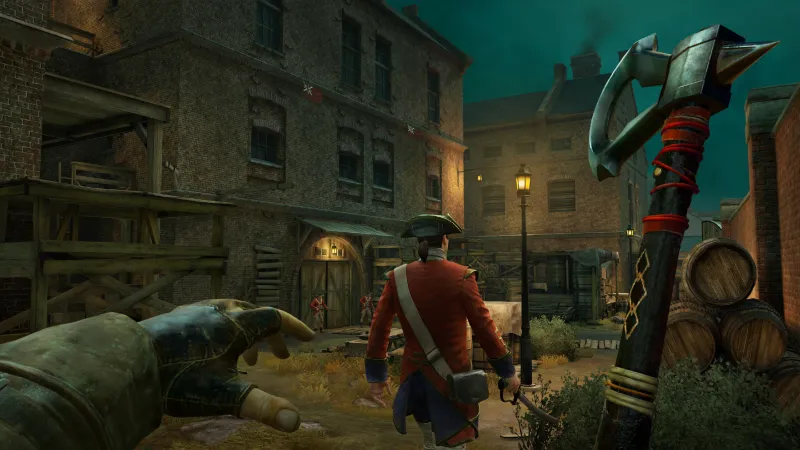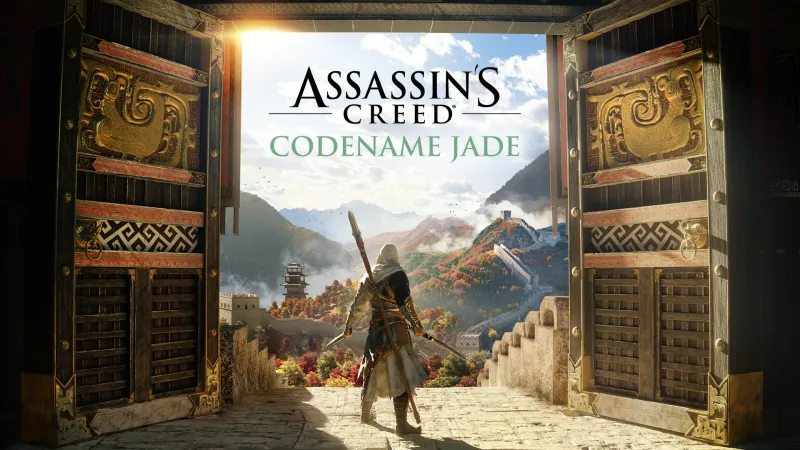After six years of massive open-world RPGs, Ubisoft’s long-running Assassin’s Creed franchise is returning to its stealth-based, dense city roots with Assassin’s Creed Mirage and the more I see of it, the more excited I get for October. I’ve enjoyed the series’ foray into RPGs over the years, but 2020’s Assassin’s Creed Valhalla, which took me more than 100 hours to roll credits on, left me exhausted and burnt out with what Ubisoft had done to a franchise whose games previously took 20 hours to beat.
After a recent preview event that featured new gameplay and details about Mirage, I feel that it will reinvigorate my love for this series I’ve loved since I was 12. In it, we play Basim, whom we previously saw in Valhalla as the Assassin that brought protagonist Eivor into the Hidden Ones, only to be left feeling more like an enemy than a friend by the end of the game. That’s because Valhalla reveals Basim to be the Asgardian trickster Loki, setting wide expectations for the series’ future.
Mirage narrative director Sarah Beaulieu tells me Mirage handles that revelation in some way, stopping short of revealing how. But she says Mirage keys players into how Basim goes from street thief to assassin to where he’s at by the end of Valhalla. He cuts his teeth on the densely packed streets of Baghdad during the 9th Century, and Beaulieu says Baghdad is comparable in size to Assassin’s Creed Unity’s Paris or Assassin Creed Revelation’s Constantinople. She also calls Mirage’s narrative a self-contained coming-of-age story. It doesn’t feature any modern-day storytelling or segments as a result.
In the snippets of Mirage gameplay I see, Baghdad’s capital city, Midanat-Al-Salam, looks more parkour-able than any city in the past half-decade of Assassin’s Creed games. Its streets are tight and filled with NPCs who, thanks to the crowdblending mechanic’s return, can act as your key into otherwise impenetrable areas. But if that doesn’t work out, you can always take to the rooftops, where paths are built for fast-paced traversal. Pass over, pass under, corner swings, and pole vaulting moves fill Basim’s parkour repertoire, as does the ability to have local street heralds lower your notoriety.
That’s especially important to helping Basim maintain a low profile when infiltrating fortresses and enemy outposts. His eagle Enkidu helps stake these out, but new marksman enemies can prevent that, so you must take them out first. You have access to six primary tools, each upgradable, including smoke bombs, blow darts, throwing knives, noisemakers, and more. These tools, combined with Basim’s new Assassin’s Focus ability, which slows down time to allow him to quickly target and take out multiple enemies, make swift assassinations a breeze.
Something I especially like is Assassin Bureaus and their place in Mirage’s gameplay. Basim can pick up contracts in these various hubs to complete assassinations, side quests, rescue missions, and more. An Investigation Board here replaces the quest board seen in previous Assassin’s Creed games to track the goings-on of the antagonistic Order of the Ancients, and it feels more in line with classic games of the series.
Mirage borrows some UI imagery and mechanics from the RPGs of the series, but beyond that, it really does seem to look and play like an Assassin’s Creed of the 2010s, and I mean that in the best way. My biggest worry is that it will further highlight how exhausting Ubisoft’s Assassin’s Creed RPGs are, but that’s a problem for Assassin’s Creed Red, the next in that vein of games set in feudal Japan; for Mirage, returning to the roots that made this series so popular to begin with might be the smartest decision Ubisoft could have made for this 2023 entry.
Assassin’s Creed Nexus VR

Before showcasing Mirage, though, Ubisoft gave me a look at Assassin’s Creed Nexus VR, its upcoming Meta Quest game, and Assassin’s Creed Jade, the previously announced mobile game set in ancient China.
Nexus features three assassins across its story, a first for the Assassin’s Creed franchise, and the three are returning characters from the series’ history: Ezio Auditore (of Assassin’s Creed 2, Assassin’s Creed Brotherhood, and Assassin’s Creed Revelations fame), Kassandra from Assassin’s Creed Odyssey, and Connor from Assassin’s Creed 3. This showcase didn’t feature any gameplay, but pre-rendered animations allude to what gameplay might look like. It looked great, but I’m taking it with a grain of salt.
Three playable assassins in one game’s story isn’t the only first happening with Nexus; it’s also the first first-person Assassin’s Creed, which makes sense, given it’s a VR-exclusive title. Each of the three stories in Nexus are brand-new for the returning assassins, but together they will span across an overarching narrative in which players must infiltrate Abstergo Industries to stop it from retrieving three hidden artifacts the company plans to use to force Abstergo product users to fall in line with Templar beliefs.
As you might expect, Ezio’s story takes place in 15th Century Italy during the Italian Renaissance, and creative director David Votypka says players will run into characters from previous Assassin’s Creed games (hopefully Leonardo DaVinci). Kassandra’s story takes place in 400 BC, and Connor’s is during the American Revolution. Votypka says the environments are open maps meant to be sandboxes for assassinations and more, noting there’s no linear approach to completing assassinations.
To complete these assassinations, you use the Meta Quest controllers to grab smoke bombs and knives off your assassin’s chest and waist belts, their bows on their backs, and their swords, axes, and the like on their side.
While it might sound great to perform assassinations and do leaps of faith in VR, it also might be a nightmare for those who get motion sickness in headsets. Votypka says there’s teleport locomotion for moving through levels, vignetting for peripheral vision blocking, and systems built into the game for those with a fear of heights.
Everything I learned about Nexus sounds great on paper, but I’m still unsure what to expect without seeing any gameplay.
Assassin’s Creed Jade

Jade is the company’s first foray into the open world, action RPG mobile space, and it’s also the first Assassin’s Creed where players can create and customize their own assassin. Ubisoft says developer Level Infinite wrapped up its technical alpha phase last year and will have betas later this summer. You can pre-register for these betas now.
Set in the 3rd century BC during ancient China’s Warring States period (which places it between Assassin’s Creed Odyssey and Assassin’s Creed Origins), players can explore Xianyou, the capital of the Qin Dynasty’s ancient China, the surrounding wilderness, and more. During this period, the Great Wall of China’s construction began, and players can parkour across what’s already there and explore what’s beyond the wall.
As a longtime Assassin’s Creed fan, I’ve never particularly wanted a full-scale, open world on my phone, but I’m also intrigued by the prospect and looking forward to going hands-on with it during a beta this summer.

